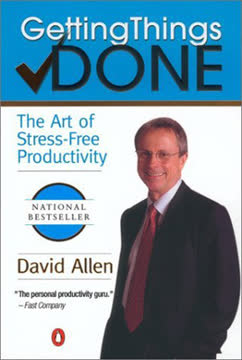Key Takeaways
1. Articulate and Prioritize Your Goals
No matter what your career aspirations are, you should begin by thinking carefully about why you are engaging in any activity and what you expect to get out of it.
Define your purpose. Many professionals are busy but not productive because they haven't clearly defined their goals. Start by listing everything you do or plan to do professionally, then organize these into Career Aims (5+ years), Objectives (3-24 months), and Targets (weekly). This structured approach reveals where your time is actually going versus where it should be going.
Rank your priorities. Evaluate your Objectives and Targets based on what you want, what you're good at (comparative advantage), and what your organization and boss need. This ranking helps align your daily activities with your most important goals. A significant mismatch between your priorities and time allocation indicates a need for change.
Address the mismatch. If your time isn't aligned with your top priorities, diagnose the cause. It might be personal habits like procrastination or micromanagement, or organizational issues like inefficient meetings or bureaucracy. Creating a tiered to-do list, reviewed regularly, helps keep your highest priorities front and center.
2. Focus on the Final Product from the Start
Instead, think hard at the start of a project about where it’s going: what are the critical issues, and how are they likely to be resolved?
Begin with the end. Don't waste time gathering endless information without a clear direction. For complex projects, quickly formulate tentative conclusions or hypotheses about the critical issues and likely outcomes. This provides focus for your research and analysis, making your work much more efficient.
Iterate and refine. Your initial conclusions are tentative and should be revised as you learn more. Conduct "midflight checks" to pause, reflect on new information, and adjust your hypotheses and approach. This is especially crucial in collaborative projects involving different teams or disciplines to ensure alignment and address emerging issues.
Overcome procrastination. The need to formulate early conclusions requires jumping into the core of the project, which can be challenging for procrastinators. Break large projects into smaller, manageable pieces, control your work environment to minimize distractions, and set evenly spaced minideadlines, ideally with accountability to others, to maintain momentum.
3. Don't Sweat the Small Stuff; Aim for B+
But for most of your low-priority tasks, B+ is quite often “good enough.”
Apply the OHIO principle. "Only Handle It Once" means addressing low-priority items immediately if possible, rather than letting them pile up and require repeated attention. This applies particularly to emails and requests; quickly decide whether to respond, delegate, or ignore.
Ruthless prioritization. Recognize that not all requests or tasks are equally important. Apply the 80-20 rule: focus your best effort on the 20% of tasks that yield 80% of the value. Be willing to delegate or ignore low-priority items that don't significantly contribute to your goals, even if they are personalized requests.
Accept imperfection. For low-priority tasks, striving for perfection is counterproductive and time-consuming. Aim for "good enough" (B+) rather than spending excessive time pushing for an A+. This frees up valuable time and energy to dedicate to your highest-priority goals where excellence truly matters.
4. Master Your Daily Routine and Calendar
Part of the key to time management is carving out time to think as opposed to constantly reacting.
Proactive calendar management. Use your calendar not just to list appointments but to drive your key Targets. A two-column calendar, listing scheduled events on one side and your purpose/priority for each on the other, ensures you're focused on achieving your goals throughout the day.
Schedule thinking time. Avoid filling every hour with meetings. Intentional gaps of at least thirty minutes are crucial for reflection, strategic thinking, and handling unexpected issues. Treat these "rests" as important as any scheduled appointment.
Routinize mundane tasks. Minimize decision fatigue by making routine activities simple and automatic. This includes morning routines, dressing, and simple meals. Prioritize sleep (aim for eight hours) and regular exercise, viewing them as essential investments in your alertness and productivity.
5. Optimize Meetings and Travel for Productivity
Meetings are like a gas expanding to fill all available space.
Avoid unnecessary meetings. Before calling or attending a meeting, question its purpose. Meetings are best for building relationships or engaging in debate; information sharing can often be done more efficiently via email or other means. Politely decline meetings that don't align with your priorities or lack a clear agenda.
Run efficient meetings. For necessary meetings, ensure there's a clear agenda and advance materials distributed beforehand. Limit introductory presentations to 15-20 minutes to maintain attention and transition to discussion. Keep meetings short (ideally under 90 minutes) and end with clear action items, owners, and deadlines, ideally set by the participants themselves.
Travel lightly and purposefully. Plan travel details meticulously in advance, especially for complex international trips. Pack efficiently to avoid checking luggage. Use travel time productively for reading or thinking. Manage jet lag proactively by adjusting your sleep schedule and exercising upon arrival.
6. Develop Essential Communication Skills
If you want to be an effective reader, you have to know your purpose for reading and stick to it.
Read actively and purposefully. Don't read linearly. Start by understanding the structure (headings), then read the introduction and conclusion to grasp the main points and organization. Skim the body by reading topic sentences, deciding whether to delve deeper based on your reading purpose (understanding ideas, finding facts, evaluating analysis, etc.).
Write with clarity and structure. Plan your writing with an outline (brainstorm, categorize, outline) before drafting. Structure your piece with a clear introduction (context, theme, roadmap), body paragraphs starting with topic sentences, and a conclusion that offers new insights beyond a mere summary. Use concise language, active voice, and proofread meticulously.
Speak effectively by preparing. Know your audience (who, why, what they care about) to tailor your message. Structure your speech with a clear introduction (joke/story, relevance, roadmap), a persuasive body (logic, examples, emotion), and a conclusion with clear takeaways. Rehearse out loud, ideally with feedback, and speak from an outline, not a full text, to maintain spontaneity.
7. Empower and Manage Your Team Through Delegation
The lesson here is that managers can get the most out of their employees by helping them achieve meaningful progress every day.
Delegate effectively. Free up your time for high-priority tasks by delegating lower-ranking goals to your team. Effective delegation leverages the skills of managers across the organization and expands overall output.
Foster ownership. Implement the principle of "Owning Your Own Space" by setting clear project goals but giving employees broad discretion on how to achieve them. This builds entrepreneurial spirit, allows for quick adaptation, and makes work feel more meaningful, increasing motivation and results.
Support and tolerate. Surround yourself with talented, trustworthy people by prioritizing recruitment. Support your team by providing necessary resources and advocating for them within the organization. Monitor progress without micromanaging, and tolerate well-intentioned mistakes, using them as learning opportunities rather than occasions for blame or humiliation.
8. Build a Productive Partnership with Your Boss
You do have to manage him, however, so that he becomes your resource for achievement, accomplishment, and personal success.
Align on priorities and style. Regularly discuss your assignments and their priority ranking with your boss to ensure alignment. Adapt your communication style (email, phone, in-person) to match your boss's preferences. Understand your boss's management style (Inventive, Empathetic, Cautious, Obsessive) to anticipate needs and compensate for weaknesses.
Deliver results and communicate proactively. Consistently produce high-quality work on time and within budget. Underpromise and overdeliver. Keep your boss informed of progress and potential problems, offering solutions rather than just identifying issues. Accept responsibility for problems under your purview.
Be loyal and strategic. Be an ally to your boss, supporting them publicly and privately. Look for opportunities to make your boss look good to their superiors. Avoid jumping the chain of command without notice. When disagreeing, choose your battles wisely and present concerns with objective facts and proposed solutions in a collaborative tone.
9. Plan Your Career as a Dynamic, Step-by-Step Process
Career planning isn’t a onetime event; it’s a continual process that has to be actively managed over a lifetime.
Formulate tentative aims. Begin by assessing your interests, skills, and market demand to create a list of potential long-term Career Aims. Research these jobs thoroughly by talking to people in the field to understand the day-to-day realities and required skills beyond formal credentials.
Maximize options at each step. Don't try to map out your entire career trajectory at once. At each stage, choose the next job that will maximize your future options. Prioritize roles that offer transferable skills, such as leadership, international experience, or exposure to different organizational types.
Learn continuously and adapt. Combine formal education with on-the-job learning, focusing on "hard" subjects and skills applicable across industries. Conduct an annual career checkup to reevaluate your goals and current job in light of internal and external changes. Be willing to try new roles and pivot quickly if they aren't the right fit, learning from failures.
10. Embrace Change While Upholding Core Principles
Warren Buffett was exactly right when he said, “It takes 20 years to build a reputation and five minutes to ruin it.”
Recognize pervasive change. Understand that change is constant in the economy, driven by factors like technological innovation, demographic shifts, and financial crises. While humans naturally fear change, learning to embrace it is crucial for identifying and seizing new opportunities.
Position yourself strategically. Pay attention to long-term trends when considering career steps or organizational initiatives. Look for opportunities in expanding markets or sectors benefiting from demographic shifts or technological advancements. Be willing to combine disciplines to create new potential.
Stay grounded in fundamentals. Despite rapid change, certain principles endure. Understand core economic fundamentals like the necessity of profits, not just revenues. Uphold your personal integrity by defining your ethical code and consistently adhering to it. A strong reputation for integrity is invaluable and easily lost.
11. Achieve Work-Life Balance Through Efficiency and Boundaries
The more efficient you are at work, the more time you’ll have for your family, your friends, and other aspects of life that you care about.
Prioritize personal time. Use exercises like allocating hypothetical extra hours to understand your true priorities outside of work. Recognize that increased productivity at work directly translates into more time for family, friends, and personal pursuits.
Seek workplace flexibility. Advocate for or seek employers who offer flexible hours, remote work options, and paid leave policies. These policies benefit both employees and organizations by improving retention, reducing absenteeism, and boosting morale.
Set boundaries and shift mindsets. Be assertive in protecting your personal time, learning to say no to non-critical work interruptions after hours. Create physical and mental separation between work and home, even when working remotely. Use "rites of passage" like commutes or routines to transition between roles and fully engage with your family when you are home.
Last updated:
Review Summary
Extreme Productivity receives mixed reviews, with praise for its practical advice on increasing productivity, especially for corporate professionals. Readers appreciate the actionable tips, focus on results over hours worked, and career development insights. However, some criticize its outdated gender assumptions and elitist tone. The book's strengths include time management strategies, goal-setting techniques, and advice on reading, writing, and speaking effectively. While some find it less relevant for non-corporate settings, many readers value its straightforward approach to boosting productivity and work-life balance.
Similar Books










Download PDF
Download EPUB
.epub digital book format is ideal for reading ebooks on phones, tablets, and e-readers.




